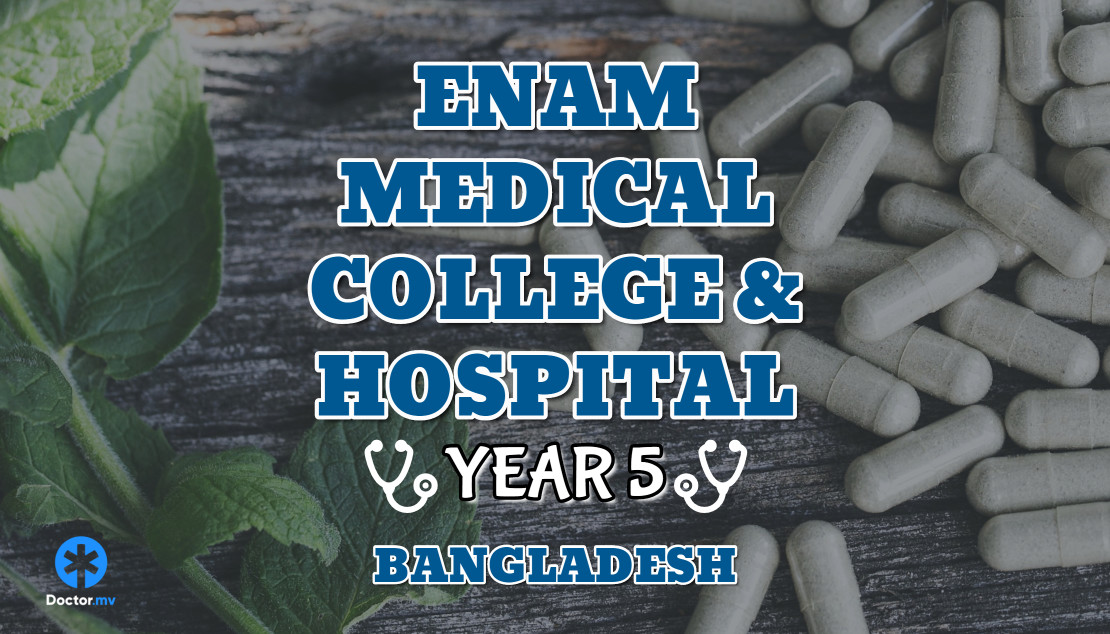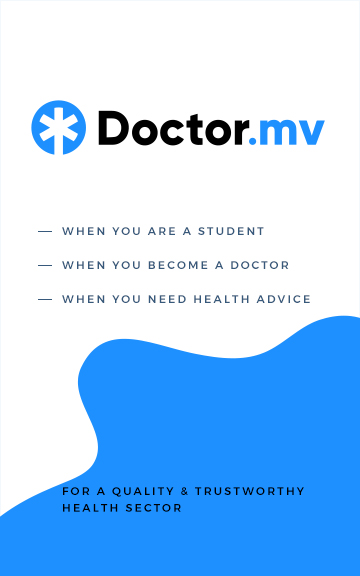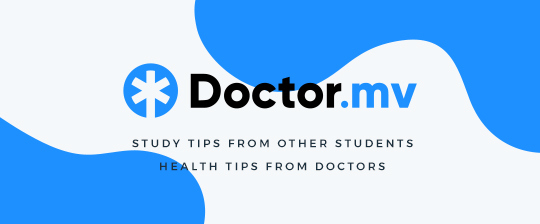I'm IBTHIHAL SAMEER and this is My Medical Student Life

Nabeel Ibrahim
Published on: 14/10/2018
Bangladesh Enam Medical College and Hospital Fifth Year Fathimath Ibthihal SameerUniversity
Enam Medical College and Hospital
Current Year
Fifth
Medical Specialty Interested in
ENT, Orthopedics, Cardiology & Respiratory
One Word that Describes You
Passionate
Most Intriguing subject in Medical School
Rheumatology
What was your path to Medical School like?
For my secondary education, I joined Aminiya school. I chose Fisheries science as my optional subject for O'levels. Hence, after graduating I wanted to pursue a career as a Marine biologist instead of Medicine.
After joining CHSE, I chose Mechanics as a subject since I was still not sure about Medicine. However, after my 11th grade I was sure about it. I couldn't imagine myself committing to anything else because I love Medicine. It was a gradual increase in interest which I think was because of the subjects I was learning.
I worked in ADK Hospital for 5 months before leaving to Bangladesh in 2014. At first, I wanted to go to India. However, that would mean I would have to wait one more year because Indian colleges only had September intakes. It was already May. Even colleges in Nepal had September intakes.
The doctors I worked with told me not to waste time. I had applied and got the student loan by that time as well. I got to know about Bangladesh through a friend. My mom helped me search for universities. It was a very spontaneous decision to join here as we found an agent and moved on from there.
What was the biggest difference between your expectations of entering Med School when you were doing A'level, and the actual experience of being there?
Before I came here, I thought it was going to be always exciting, but, it turned out to be very different. In Medical school it's not only about studies, it's also about sacrificing a lot.
I grew so much not only in knowledge, but as a person too. I got to learn about tolerating different kinds of people. Had to adjust from smaller things like the food and bigger things like the way I had to dress every day. The climate is super hot in Summers and very cold in the Winters.
It was stressful. No one told me we were going to have exams every single day. Basically, it's impossible to have a social life since you always have to be committed to studies.
How is your daily routine like?
We only get Fridays as a weekend. Lectures start at 8 am and end at 10 am. From there until 12 pm is the ward placement. On Tuesdays, we have a central seminar, where we discuss clinical cases from different departments. Lectures resume again until 2:30 pm, and that is when we are done for the day.
I wake up at 7:30 am and come back home at 3 pm. I take a nap for an hour before starting to study. It's a must to study everyday since we have exams the next day. I try to sleep at 2 am but on hectic days I go to bed at 3 or 4 am.
How do you balance school with your personal life?
Like I said before, Medical school is all about sacrifices. You are going to miss a lot of things from birthdays to weddings to your best friend giving birth.
Everything depends on priorities. Whenever you get a free time you give it to people you care about the most. Since you don't get a lot of time here, you must spend it wisely.
Personally, I'd rather sleep than go out and enjoy. Plus, since we live in a rural area, there isn't much to do. If we do get 2 or 3 days of holidays, it is a 1 hour drive to capital Dhaka where we spend the whole day.
Why did you decide to choose Medicine and not some other field where you can help others?
I have doctors in my family and my mom was a health worker. Hence, I loved hospitals since I was a kid. I get easily fascinated by simple procedures like injecting a patient. In school, I loved Biology and learning more about the body.
It's not only about helping others but saving lives as well. Medicine is challenging and I couldn't have committed to anything else. I'd rather face the challenge than have an easy route.
Name your favorite medical text book.
In fourth year, I used Robbins Pathology & Davidson's Principles and Practice of Medicine. I would recommend these two books.
What is the greatest challenge facing the Maldives Medical System today?
When it comes to doctors, effective communication is lacking. In Medical school, they teach us counseling between doctor and patient. We have exams on that. Yet, we fail to apply it. Even if a patient comes with a simple complaint , the doctor has to explain the possible causes. The doctor has to answer and clarify every single question and doubt the patient may have. Finally, the doctor has to explain the reason for the specific medicine being prescribed and if it doesn't work what treatment course is going to be followed afterwards.
Most of the times when the patient leaves the consultation room, they have a big question mark on their faces. They don't really know what is going on. This leads to the lack of trust in the healthcare system.
Moreover, there is no referral system in the Maldives. How it should be is that the patient must go to a General Physician and he/she should refer the patient to a doctor. IGMH tried to do this but it wasn't efficient at all.
We have so many great Maldivian doctors. Cardiologists, Pulmonologists and good Surgeons. However, they prefer to work abroad because we do not have good facilities in the Maldives. They can't work here. It's high time we install the facilities here. I understand that it will take time, but we need a plan of action.
Furthermore, now in the Maldives, non-communicable diseases are more than communicable diseases. Patients are not aware of this. They do not know the risk factors of diseases such as Carcinomas, Breast and Cervical Cancer, Diabetes and Hyper-Tension. They do not know whether they are high-risk or when to go to the doctor. There is a lack of Screening programs or Health education campaigns. It's not only Dengue that needs awareness programs.
Finally, I would like to mention Mental health. It's neglected in the Maldives. The other day, I read that the only specialized facility for Mental health patients is at K. Guraidhoo. Yet, the seats are full. Parents do not have a clue on what Mental health is. Schools need to focus on the Mental health of students. Psychologists need to be present at all times. Cutting, drinking bleach and suicides are too common and appropriate measures are not taken. When it comes to depression and anxiety 80% of the treatment is psychotherapy.
What is the most effective way to study in Medical School?
You should have a partner to study with. I too prefer to study alone but it is much more effective with a partner. The day before the exam, me and my partner discuss the material and questions since it is impossible to remember everything. We have VIVAs (oral exams) hence, it is important to read the answers out loud to someone.
Also, I make one or two page short notes. If we are studying for example a disease, there are a lot of information in the book. I break it down to causative organism, risk factors, clinical features, investigation, history etc.
Do you need High grades to become a decent doctor?
No. Medicine is not only about the knowledge that you have. It's more practical than theory. If you can't apply what you have learnt, what is the point of knowing it. You need practice.
When I first came here, a doctor told me, 'If you want to become a good doctor, you have to study in a specific way, and if you want to get a good grades, you have to study in a different way.' It is easy to memorize everything before an exam, but if you don't understand the concept, it denies the purpose. The whole body works together, so you need to understand one part to know the other.
Moreover, some students do well in written exams rather than oral exams. You have to answer questions in front of professors, doctors and students. In OSPE, within 5 minutes the student has to answer a question, demonstrate a procedure or diagnose a patient. It is difficult hence some students do not do that well. In my opinion, that doesn't make them a bad doctor.
Finally, what is the one tip/advice you want to give to our readers?
If you want to pursue Medicine, don't do it for the name, fame or money. Pursue Medicine if you can't imagine yourself doing anything else. You have to love Medicine. It is a lot of work, sacrifices and something that needs full commitment.
Imagine it as a Roller coaster ride. You can't get off once you start. If you take a break, you will fall far behind everybody. Your number one priority must be Medicine.
Finally, if you're going to be a doctor, don't aim to be a good doctor. Aim to become an excellent one.
The My Medical Student Life series was created for the sole purpose of helping medical students and aspiring doctors on their journey to become a successful Maldivian Healthcare Professional. Have a suggestion, idea or question? Email us.



Leave a comment
0 Comments